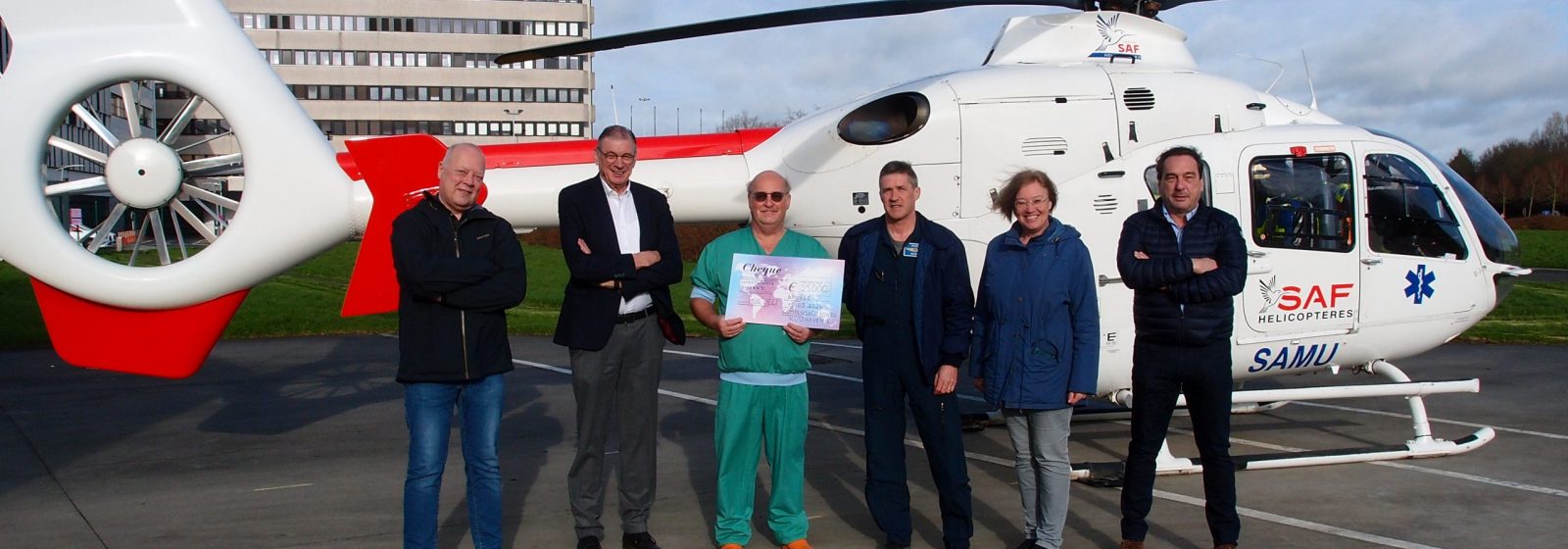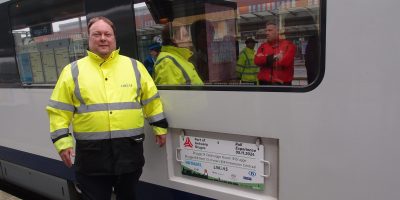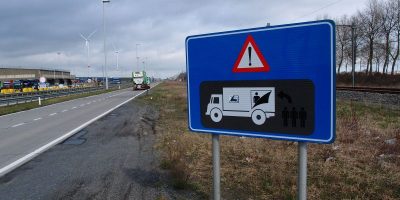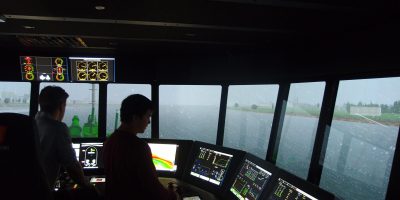
The Zeebrugge Compensation Fund supports with 25,000 euros the MUG helicopter with base at the AZ Sint-Jan in Bruges. Of over 700 interventions a year, one in 20 is in the port, where every minute to get to the scene is vital.
On Friday morning, 15 March, the Compensation Fund of the coastal ports of Zeebrugge-Bruges, Ostend and Nieuwpoort handed over a cheque for 25,000 euros to the MUG helicopter in Bruges. Which is run by the non-profit organisation Institute Medical Urgent Assistance.
“To keep our helicopter in the air for emergency interventions, 850,000 euros are needed annually,” said chairman and doctor Nicolas Müller. “Our budget comes from the West Flanders provincial government, a number of cities and municipalities, as well as small and large donations. A contribution of 25,000 euros is a very big gift.”
‘Heroes in the air’ TV series
The Bruges emergency helicopter is the only one in Flanders and is well known to TV viewers of the VTM programme ‘Heroes in the Air’. A film crew is currently following the interventions for a new series of this reality series. The MUG (Medical Urgency Group) helicopter’s base of operations is right next to the emergency department of AZ Sint-Jan. “We have a very good cooperation with the hospital, to everyone’s satisfaction,” says Müller.
“Our team, including six pilots, serves the entire province of West Flanders, part of East Flanders and occasionally we cross the border into the Netherlands. Every year we carry out 700 to 750 interventions and, on average, 5% of these are in the port of Zeebrugge. This is usually in the outer port, where the distance means it takes longer for ambulance trucks to get to the scene in time. In our work to save lives, every minute counts.”
Smoke signals
In the port, most of the work accidents involve dock workers. “We also already transported truck drivers who had become unwell or recently injured due to leaking acid in a production environment,” says experienced pilot Danny Plaisier. “It is crucial for us to be able to find our way around the port properly, for this purpose the plans with quay numbers are important. We also advise companies to indicate the exact location with a flare (smoke signal) after a call.”
“From the port community, we are very happy to support this operation because every life counts,” said Compensation Fund chairman Dennis Paelinck. He represents on the board on behalf of workers e trade union ABVV-BTB, alongside Michael Voet (ACV-Transcom) and on behalf of the Centrale van Werkgevers Zeebrugge (Cewez) Marc Adriansens and Carla Debart.
Through national and local collective agreements, contributions are imposed on employers by the Joint Subcommittee for the ports of Zeebrugge-Bruges, Ostend and Nieuwpoort. These funds are set aside in the Compensation Fund, which grants social benefits to recognised port workers, safety-certified logistics workers and skilled workers.



